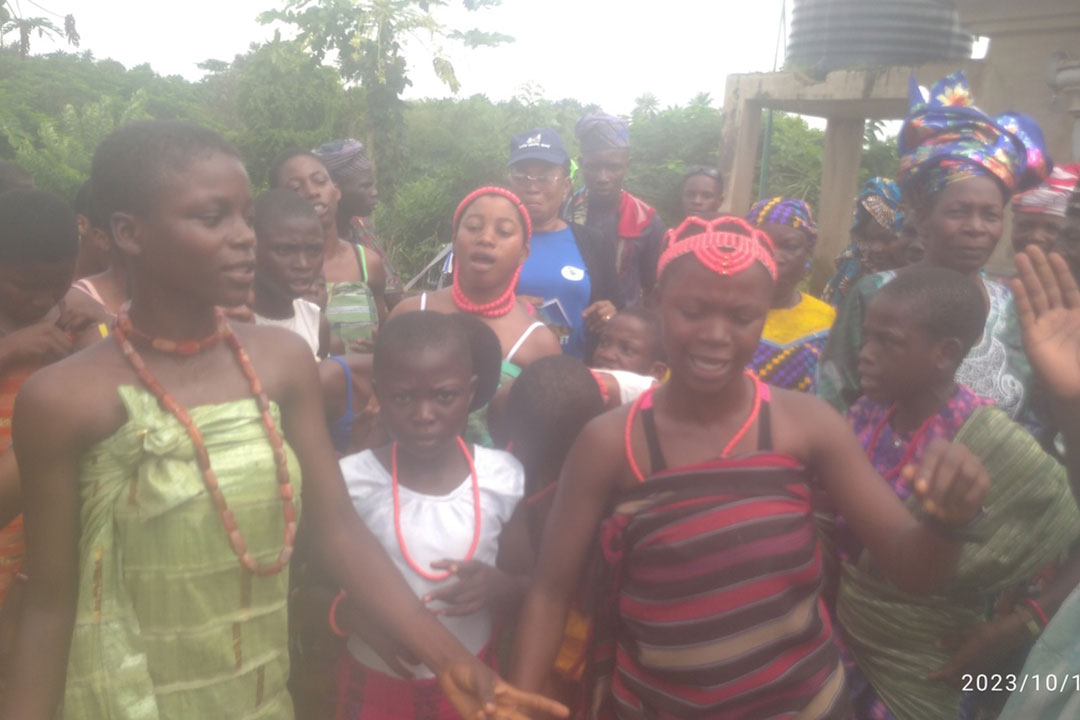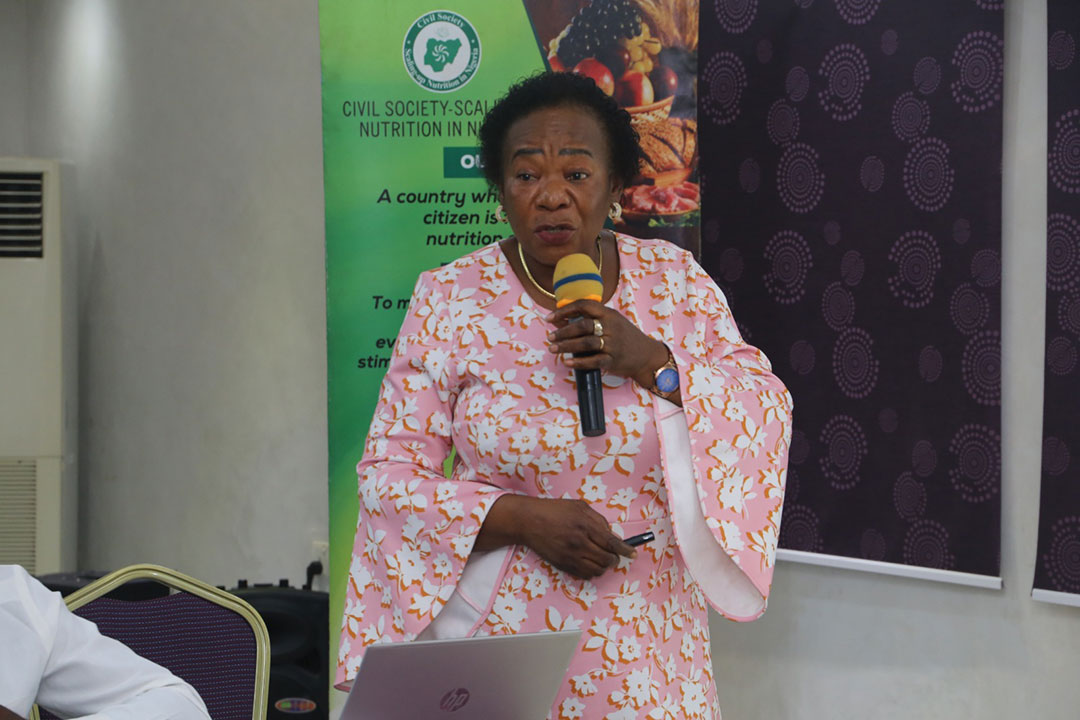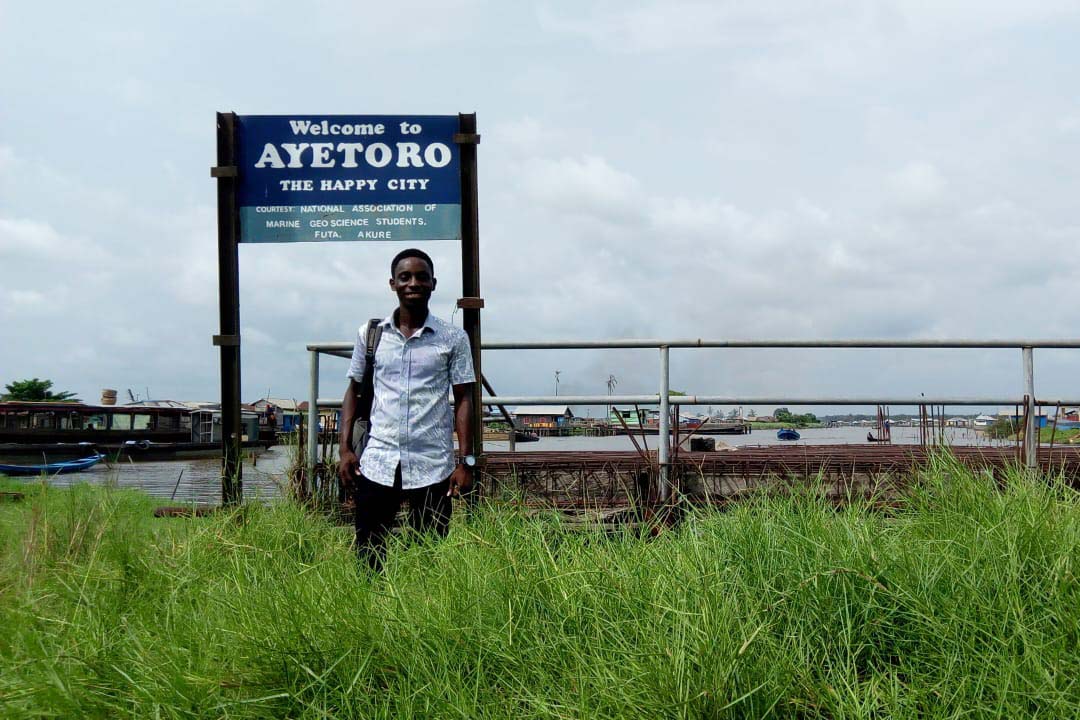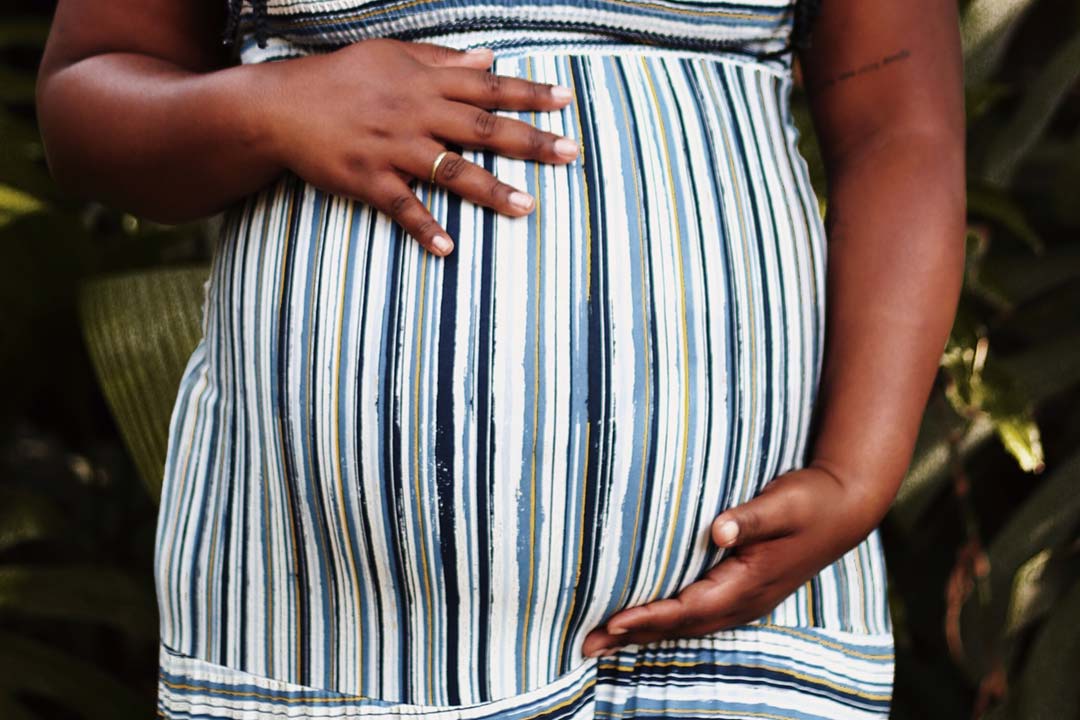No sh**: How Jago, a community in Nigeria’s Oyo State, is going open defecation-free
Most of Oyo state still practises open defecation, but one progressive community is investing in toilets – and seeing public health dividends.
- 12 January 2024
- 7 min read
- by Royal Ibeh

"There is no shit, there is no shit in Jago! There is no shit, there is no shit again! I walked around, no shit, no shit. I search around, no shit, no shit. I turned around, no shit, no shit! So therefore, no shit again in Jago," sang a jubilant chorus of community members one overcast Thursday as they welcomed a group of visiting journalists.
"While the Oyo state government is targeting open defecation-free status by 2028, we are targeting 2024."
– Baale Olusegun Oparinde, Jago community leader
Jago, in Ona Ara Local Government Area (LGA), part of Nigeria's southwestern Oyo state, has earned its bragging rights: after a concerted public sanitation and toilet-building campaign, the community is well on its way to calling itself free of open defecation.
Downstream trouble
"Six months ago, I didn't know what a toilet looks like," said Pastor Ode John, a 35-year-old farmer from Jago. "I grew up defecating in the open. Our forefathers did it, so we follow suit. We would go to the bush whenever we want to defecate. After defecating, we would look for a leaf, to clean up.
"If it is too dark for us to go to the bush, we would dig up a hole at our backyard and defecate. That was our way of life."
Open defecation remains the norm across most of Oyo. A 2021 report, the WASH National Outcome Routine Mapping or WASHNORM, indicated that only 29.2% of the population of the state had access to even basic sanitation services. Some 53.7% of the population practised open defecation, while 43% of the population used unimproved toilet facilities.

Credit: Royal Ibeh
If the evidence is clear that open defecation causes serious public health risks, the connection is not necessarily obvious to the people who practise it.
A few years ago, an outbreak of vomiting and diarrhoea hit Jago's kids. "My son was affected. We blamed it on the food he ate a night before the incident," Ode recalled.
The child's diarrhoea lasted for a week, Ode said. "I had to rush my son to the hospital, because he was so weak and I feared he could die. I spent almost half of my savings that year, before he could get better."
Monday Johnson, WASH specialist with UNICEF for Nigeria's South West Zone, told VaccinesWork that this is a common story in communities that practise open defecation.
"When faeces are left out in the open, rainwater washes them to the nearest water source, which for the Jago community is a creek, where they collect water to cook and wash clothes. They believe they have left the excrement in the bush, but it has found its way into their house and stomach," Johnson explained.
Diarrhoeal disease often follows, affecting mainly young kids. Those outbreaks usually have ranging knock-on effects. "The parents, especially the mother, in particular, won't be able to take action once this occurs. She will be caring for her child at home, therefore she won't be able to go to work. Economic activities are truncated, as the parents would use the small money they had saved on treatment.
"Open defecation is not something we should take lightly, because at the end of the day, it is going to affect the family, the child's health and education. Several studies have shown that open defecation can lead to disease outbreaks like cholera, reduced school attendance, stunting, wasting, malnutrition, poor productivity and loss of GDP," Johnson said.
Changing the narrative
Oyo's leadership seems to have heard that message. The statewide goal is to end open defecation by 2028, explained Obafemi Titilayo, director of sanitation at the Oyo State Rural Water Supply and Sanitation Agency (RUWASSA).
A roadmap, launched in July 2022 by the Oyo state government with support from UNICEF, spells out what this will entail. Titilayo describes the main thrust of the plan: "The strategic objective of Oyo State Open Defecation Free (ODF) plan is to eliminate open defecation and ensure equitable sanitation and hygiene (including handwashing) services for all by 2028 in households, institutions (schools, health facilities, workplaces) and public places in all urban, small-town, and rural communities of the state."
Eighty million nairas (US$ 192,368 in July 2022) has been pooled by the state government and UNICEF, Titilayo said, to be loaned to households at a 9% interest rate – approximately half of the benchmark interest rate set by Nigeria's central bank – for the construction of sanitation facilities.
At a UNICEF-convened event in October on the WASH situation in the state, Titilayo summarised the state of play in Egbeda and Ona Ara, the two Oyo LGAs selected for the pilot phase of the statewide effort.
Have you read?
"The two LGAs have 22 wards with about 1,285 communities. Four hundred and four communities are ODF-claiming and ready for certification (Egbeda 254 and Ona Ara 150). Twelve toilet business owners and 36 masons have been trained and are actively constructing household toilets across the triggered wards of the two LGAs, which has seen 473 toilets constructed," she said. Many more communities are under Oyo State RUWASSA monitoring.
Embracing the initiative
The tide may be turning, but Baale Olusegun Oparinde, head of Jago community, says Jago cannot yet call itself completely open defecation-free. "I may have done the right thing by constructing a toilet in my home, but [some of] my people still practise open defecation. It pains me so much, because I have seen how our children are missing school because of diarrhoea; how my people are struggling to treat themselves due to diseases that could be prevented with proper toilets," he said.

Credit: Royal Ibeh
When officials of the Oyo state government came to Jago community, Baale said he quickly keyed into the initiative. "I ensured funds are available for my people to construct the toilet and I also stand as a guarantor for them, which is one of the requirements to access the 80 million nairas pooled together by our state government and UNICEF."
Presently, almost all the households have installed Satopan – a simple plastic attachment that can convert any pit latrine into a sanitary toilet. But this shift didn't happen overnight. Oparinde says he had to deploy diverse means to convince his people to buy into the initiative.
Carrot and stick method
Yellow Othuigbe, a native of Togo who migrated to Jago community 40 years ago, told VaccinesWork that it costs 60,000 to 70,000 nairas (US$ 68–78) to instal a Satopan. "That is huge money for us. We are mostly farmers in this village. Though our Baale told us that if we construct the Satopan in our homes, our children won't fall sick from diarrhoea again, we could not just come to terms with the fact that we would have to pay back the money."
Following his efforts to educate his community members about the advantages of building a toilet in their compound, Baale Oparinde claims he had to use a "carrot and stick" strategy, promising rewards to those who build their own and threatening to have the homes of those who refuse to build theirs locked up.
"That really helped most of them to construct their toilet. Today, the majority of them have paid back the money. As for those who are yet to complete their payment, they are paying according to the financial capability – no pressure. For those who cannot afford it at all, we, the community members, are raising funds for them. Presently, I have paid for the construction of four toilets for those who cannot afford it. While the Oyo state government is targeting open defecation-free status by 2028, we are targeting 2024," Oparinde disclosed.
"We have now seen the importance of defecating in the toilet. For the past eight months, none of my family members have fallen ill to diarrhoea. Though we gave our Baale a tough time, we are grateful to him for not giving up on us," Pastor Ode John stated.
"We have now seen the importance of defecating in the toilet. For the past eight months, none of my family members have fallen ill to diarrhoea. Though we gave our Baale a tough time, we are grateful to him for not giving up on us."
– Pastor Ode John, Jago community member
Othuigbe, who was initially daunted by the high cost of constructing his toilet, said, "I finally paid my money. It wasn't difficult as I envisaged. Seeing my children growing healthier motivated me. I applaud the Baale of Jago community for standing by us, to achieve this giant stride in the community."
The next step
"While our community is [almost] free, neighbouring communities still practise the menace," Othuigbe said. The elders at Jago community are now going from one village to another to sensitise them on the importance of embracing the ODF initiative.
"We are doing this for free and our message is simple: we tell them why they are always sick and what they must do to change the narrative. It is working, as many communities are now constructing their toilets. We hope that before 2028, the whole Oyo state will be free of open defecation," Othuigbe stated.








